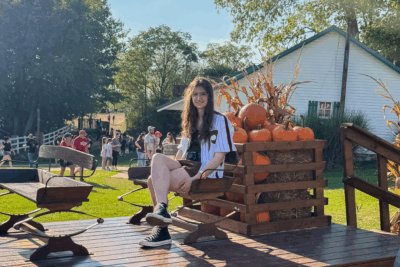Goshen College may seem bike-friendly to many, but it’s up to the League of American Bicyclists to decide whether that will become an official title.
In May of 2016, Nat Dick, a junior environmental science major, sent in Goshen College’s application for the Bicycle Friendly University (BFU) program.Dick, with the help of Jack Shomberg, a senior, came up with the idea to apply for the recognition during Jerrell Richer’s environmental economics class in the fall of 2015. However, Shomberg went on SST during the spring of 2016, leaving Dick with the task of filling out and submitting the application.
The BFU program is sponsored by the League of American Bicyclists and encourages states, towns, businesses and universities to create more bike-friendly communities.
“The program strives to recognize communities and universities that have implemented changes to make their communities and campuses a safer place for bicyclists and encourage them to bike,” Dick said.
Although Dick sent in the application during May term, the review process didn’t begin until the beginning of September. Goshen College should expect to hear back from the program during the next month or so, according to Dick.
If Goshen College was to receive the award, it would be the smallest university with the recognition.
“There’s no precedent for how the size of an institution affects what we need to do to get it,” Dick said.
The BFU program takes into account each school and considers the financial struggles, student population and other factors in its decision to deem a school as bicycle-friendly.
The city of Goshen was deemed a bike-friendly community in 2011 and has continued to stay on the list of communities in the United States that makes the safety and well-being of bicyclists a priority.
“It seems only logical that we would build on that and be part of that,” said Glenn Gilbert, utilities manager and sustainability coordinator. “In fact, that will be part of the application – how we’re partnering with the local community. I think we’re going to be in pretty good standing there.”
Unfortunately, Dick and Gilbert are unsure whether GC will receive the achievement.
Gilbert said, “We’ve sent in the application, and they’ve said, ‘You probably won’t get it this year, but we’ll come back with a menu of things to work on.’”
Although Goshen College may seem to be well-positioned to receive the award, it’s not an easy achievement to get.
The program judges institutions based on five categories (known as the five Es): engineering, education, encouragement, enforcement and evaluation and planning.
The application is 20 pages long and has questions such as school population, average commute of students who live off campus and what types of bike safety courses have been offered to students, faculty and staff.
Even if GC doesn’t get recognition from the BFU program, the campus is doing what it can to supply bikers with what they need to bike safely and without troubles.
For example, at the beginning of the year, Gilbert and Dick worked together to make the bicycle repair station outside of the residence halls. Approximately 760 bike parking spots are available on GC’s campus. The Winona Railway Trail also runs right through campus, and there are plenty of other trails within miles.
“You can get around Goshen, most of the year, on bicycle,” Gilbert said. Gilbert also said he can go almost a week without using transportation besides his bike and rarely rides in a car if he can help it.
No changes were made to the campus prior to the application. Dick said that the application was a way to catalog what GC’s assets were in terms of being bike-friendly.
Students can get involved in making Goshen College bike-friendly in many different ways.
“Keep pushing,” said Gilbert. As a member of the ecological stewardship committee on campus, Gilbert said that student requests are greatly favored.
“If there’s something that students would like to see improved in biking then by all means get organized and help us figure out how to do that,” Gilbert said.
Gilbert also mentioned bike safety. Students should be wearing helmets and using lights during night rides.
“Neither of those are inaccessible,” he said. “Helmets cost money, but so do broken collarbones and concussions.”


